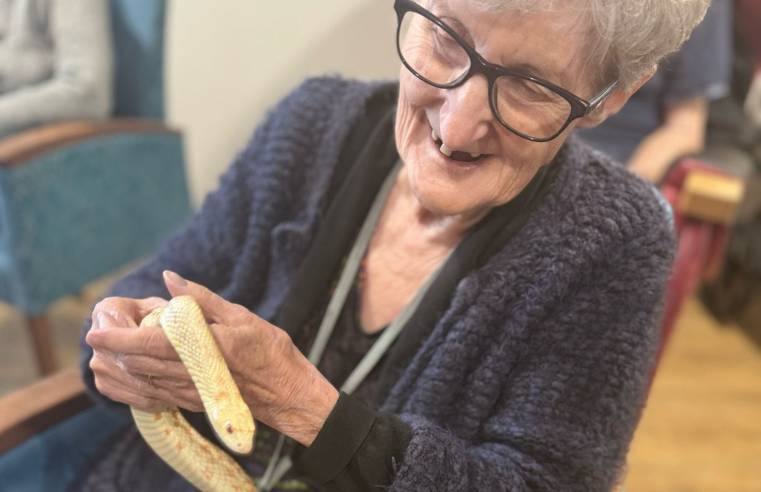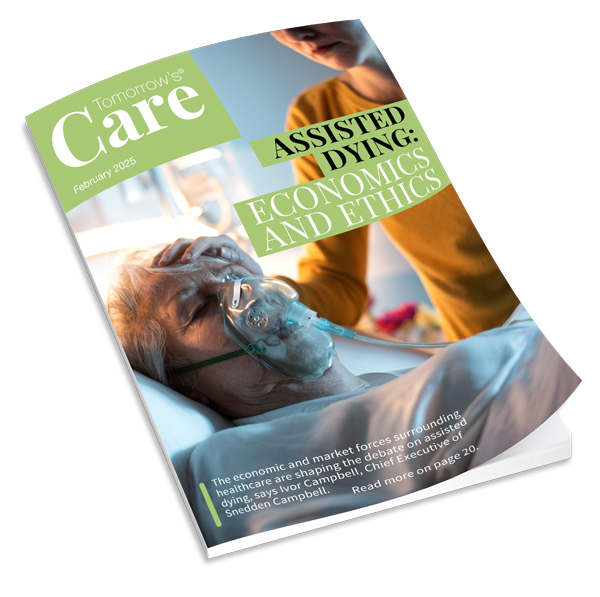A gap in the local care sector is being highlighted by Sue Kruse from Newhaven, following her experience with her elderly parents, Arthur and Marjorie.
Two years ago, full-time residential dementia care was required for Sue’s father. His wife of 73 years, Marjorie, wished to continue living with her husband but no care home provider was willing to provide for them as a couple.
Arthur and Marjorie’s daughter, Sue Kruse, said: “No care home was willing to take my parents in as a couple. The options were made clear- dad would be placed in a dementia wing and mum would be in a different floor or wing of the home. Mum was adamant that, after 70 plus years of being married, they could not be separated. However, a double room was not going to be made available in any care home - and we visited several in the area. It was an impossible situation.”
The family eventually found a specialist dementia care home in Seaford that was willing to take Arthur and Marjorie as a couple and they are very happy there, however Sue feels that this issue needs to be highlighted.
Nial Joyce, of Clifden House Dementia Care Centre, said: “It is unusual to have a person who doesn’t have dementia residing in a dementia specialist home but, in the circumstances, it was more important that Marjorie and Arthur could remain together – as this is what they both wanted. We were willing to give it a go on trial basis, and see if Arthur and Marjorie were happy.
“Keeping elderly couples together is important from an emotional perspective, and also in terms of physical and cognitive health. In the short-term, being separated from a partner can result in feelings of stress and anxiety for both parties. In the long-term, this can develop into profound loneliness; a condition which affects cognitive health, and can increase the risk of heart disease and strokes. The familiarity that comes with staying together can also help people with dementia keep calm and engaged.”
Sue wants to highlight that care homes need to be more accommodating to people’s relationships. Separating lifelong partners who wish to remain together, because of one person’s life limiting condition, can have profoundly negative impacts on both partners.
Arthur and Marjorie have now been living together in Clifden House, Seaford, for two years. They will soon celebrate their 73rd wedding anniversary. Sue Kruse’s father, Arthur, 96, is among the 1,926 people in the Lewes constituency that are living with dementia.
http://clifdenhouse.co.uk/
COUPLE’S PLIGHT TO REMAIN TOGETHER HIGHLIGHTS CARE SECTOR GAP
.jpg)
Published on 04/10/2018
Related News
Categories
- CQC ratings
- Care home news
- Care jobs
- Care planning
- Care sector awards
- Care sector events
- Care sector news
- Care staff
- Charity
- Cleaning & Hygiene
- Construction
- Dementia
- Disability
- Entertainment
- Finance
- Fitness
- Food & Drink
- Fundraising
- Furniture
- Health & Safety
- Healthcare
- Hospice & Palliative Care
- Hospitals
- Industry Comment
- Interiors
- Laundry
- Legal
- Leisure
- Medication
- Mental Health
- Mobility
- New appointments
- PPE
- Products
- Property
- Recruitment
- Relationships
- Research
- Safeguarding
- Security
- Services
- Social care
- Sustainability
- Technology
- Training
- Transport
- Uniforms
- Waste
- Wearables

























